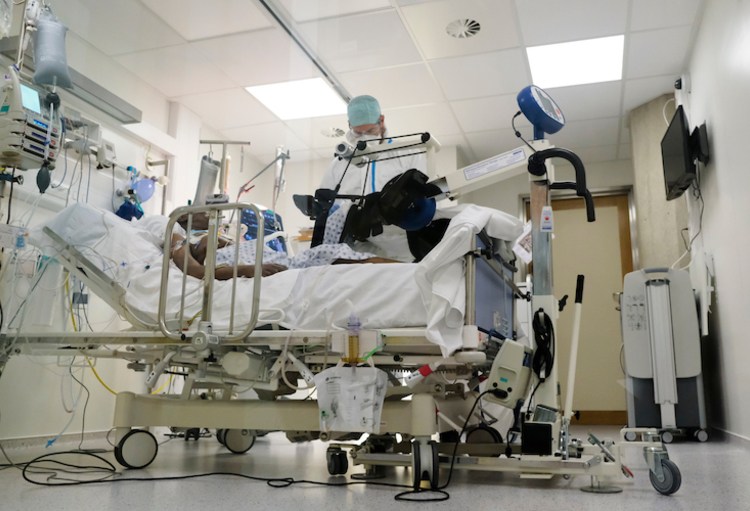Hospitals have to show solidarity towards each other and spread their Covid-19 patients between them as they prepare for a new wave of infections when the summer holidays end, according to the Hospital & Transport Surge Capacity Committee.
Due to the large differences in vaccination coverage in Belgium, especially in the Brussels-Capital Region, a number of infected people will still end up in hospital, according to the expert group.
"However, after almost two years of Covid-19, the healthcare staff are at the end of their tether," Marcel Van der Auwera of the Hospital & Transport Surge Capacity Committee said on Flemish radio.
While the need for solidarity is clear, putting it into practice is far from easy, he says.
"The hospitals in Brussels did not choose this low vaccination rate within their population. They are also victims of it," Van der Auwera added. "Let's show solidarity with those hospitals, and already look into spreading the patients."
Related News
- Make vaccination mandatory for teachers, waiters and hairdressers, say experts
- Brussels could decide on Covid Safe Tickets in nightlife in September
- Brussels aims for 65% vaccination rate by end of October
Additionally, caring for coronavirus patients at the same time as regular non-Covid procedures is "a shaky balance," he said.
"You have the patients who get tired of waiting, but we must not forget that continuing to postpone some of the lucrative procedures is also a financial problem for the hospitals," Van der Auwera added.
On Tuesday, the Brussels health authorities announced that the Region aims to achieve a 65% vaccination rate by the end of October, to prevent a possible new wave of infections.
“If we achieve [this], the fourth wave will not exceed the levels of the third wave in spring,” said Inge Neven of the Brussels Health Inspectorate at a press conference.
In spring 2021, the number of hospital admissions was still low enough that hospitals could continue providing other care, she said.
Neven stressed that the Brussels hospitals have been under great pressure in autumn 2020, and that a repeat of last year's second wave "should be avoided at all costs."

